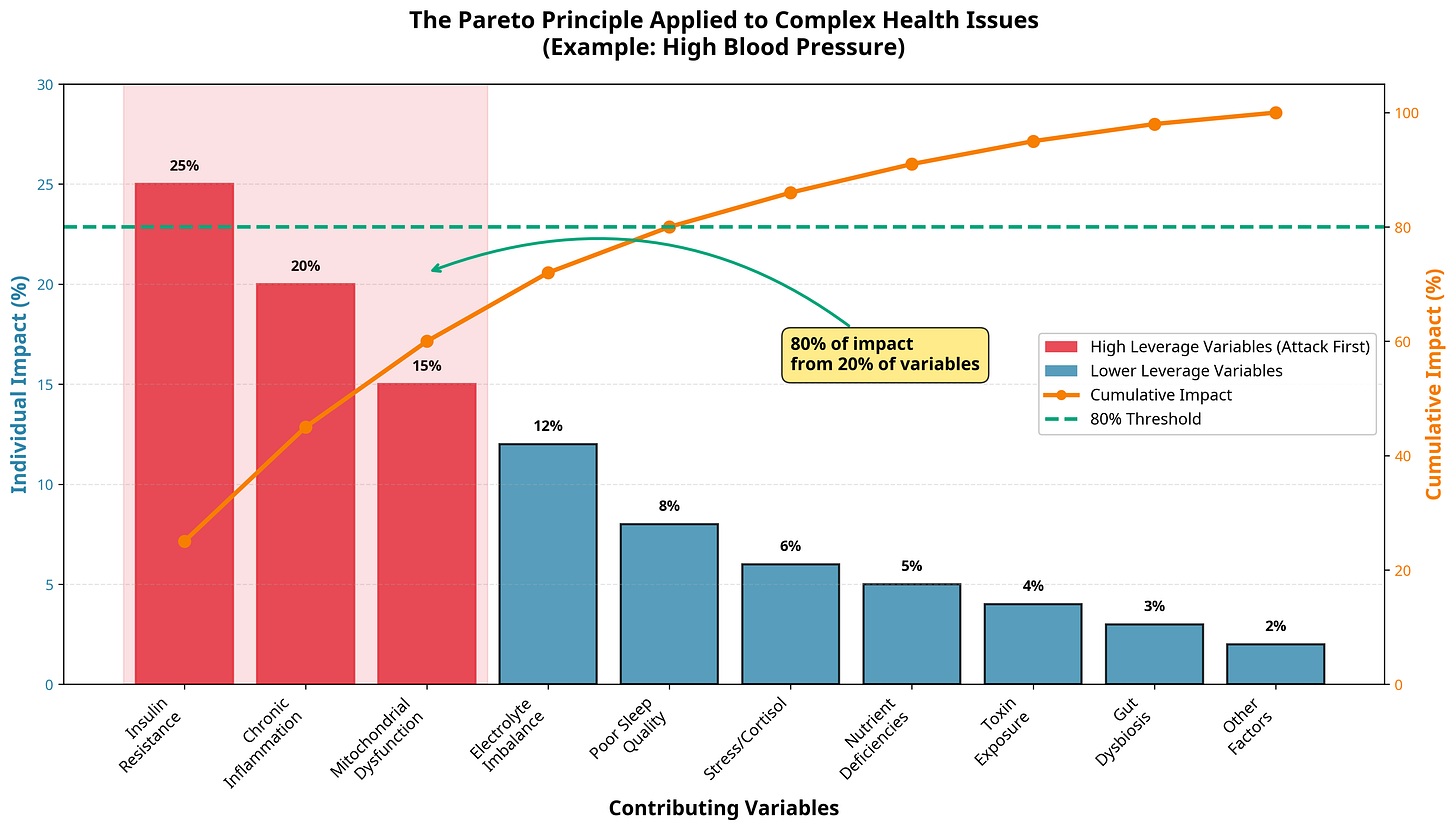How to fix the one underlying driver that’s been running your health into the ground
Health Heuristics #41
Most people approach health problems backwards
They read a study about magnesium and sleep. take magnesium. sleep doesn’t improve. read another study about melatonin. take melatonin. Again nothing. ashwagandha. Then glycine. Then taurine
Six months later, they’re 50 supplements down the line, spending hundreds of dollars a month, and their sleep is still absolutely terrible
If this sounds like you, its because
This is what happens when you don’t understand health heuristics and the pareto principle
Health itself is a system with thousands of potential variables
It’s easy for anyone including myself to make up theories that “make sense on paper.” (Shouts out chat GPT)
But only testing, iteration, and error correction reveal what’s actually true about your health.
Or as i like to say Intelligence without testing leads to elegant but wrong ideas.
And for some unlucky people you can end up wasting years of your life attacking that wrong problem because you read on a tweet somewhere.
Thats why I’m going to teach you how I approach complex health issues not by giving you a protocol to copy, but by teaching you the framework to solve your own problems faster.
What Are Health Heuristics?
Heuristics are mental shortcuts that help you get to the problem quicker.
When you’re facing a complex health issue high blood pressure, chronic fatigue, brain fog, poor sleep, you’re staring at a system with potentially hundreds of contributing factors. You could spend years testing every possible variable. Or you could use heuristics to identify the highest leverage points of the problem and attack those first
The key principle: How you approach a large problem is to hit it hard first with the highest leverage lever
You can only do this by looking acutely at the largest pieces of data and contributors to that one particular problem.
This is the opposite of how 90% of people operate. Most people:
•Read about a supplement or intervention
•Try it for a week or two
•Move on to the next thing when they don’t see immediate results
•Never actually identify what the root cause was
This is random optimization like throwing darts at a board. It doesn’t work for complex issues.
The Pareto Principle: 80/20 Applied to Health
The Pareto principle states that roughly 80% of effects come from 20% of causes.
In health, this means:
•80% of your blood pressure problem might come from 20% of contributing factors
•80% of your fatigue might be explained by 20% of metabolic dysfunctions
•80% of your sleep issues might stem from 20% of lifestyle or biochemical variables
Your job is to identify that 20% and blitzkrieg it.
Not to nibble around the edges with low-leverage interventions. Not to try everything at once and hope something sticks. But to systematically identify the biggest contributors and attack them with overwhelming pressure





